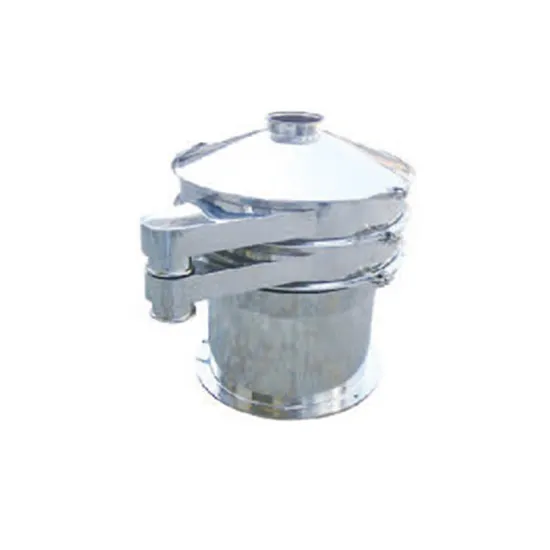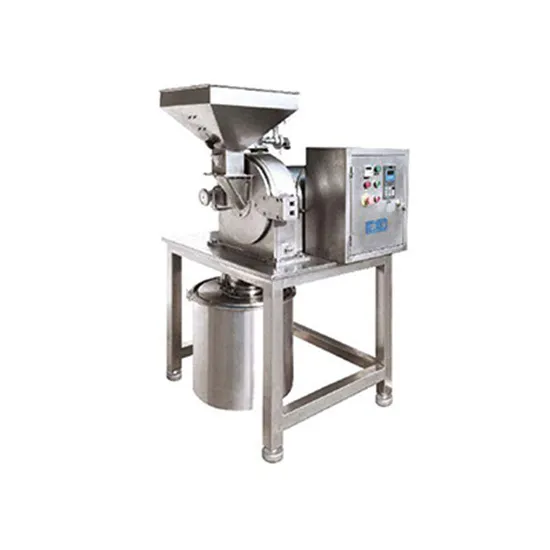NEWS
Enhancing Efficiency through Grinder Training and Operator Certification
Sep 14,2023
Table of Contents:
1. Introduction: The Importance of Grinder Training and Operator Certification
2. Understanding the Grinder: A Brief Overview
3. The Benefits of Grinder Training
4. The Certification Process: Becoming a Certified Grinder Operator
5. Advanced Techniques for Operator Efficiency
6. Frequently Asked Questions (FAQs)
7. Conclusion: Elevate Your Grinder Operations with Training and Certification
1. Introduction: The Importance of Grinder Training and Operator Certification
In today's fast-paced industrial landscape, achieving maximum operational efficiency is essential for success. Grinder training and operator certification play a pivotal role in ensuring that businesses can meet production demands while maintaining a safe working environment. This article explores how investing in training and certification can help improve skills, enhance efficiency, and ultimately drive productivity.
2. Understanding the Grinder: A Brief Overview
Grinders are powerful machines used in various industries, such as metalworking, construction, and fabrication. They are designed to remove excess material from workpieces, creating smooth surfaces and precise shapes. However, operating a grinder requires specific skills and knowledge to ensure optimal performance and avoid accidents.
3. The Benefits of Grinder Training
3.1 Enhanced Safety: Proper training equips operators with the necessary knowledge to identify potential hazards and follow safety protocols. This reduces the risk of accidents, injuries, and property damage, creating a safer working environment for everyone involved.
3.2 Improved Efficiency: A well-trained grinder operator can maximize productivity by utilizing the machine's capabilities to its fullest potential. They are adept at selecting the right grinding techniques, adjusting speed and pressure, and maintaining the equipment for optimal performance.
3.3 Reduced Downtime: Skilled operators can identify and troubleshoot common grinder issues, minimizing equipment downtime. They know how to perform routine maintenance and address minor repairs, thereby ensuring continuous production and minimizing costly delays.
4. The Certification Process: Becoming a Certified Grinder Operator
4.1 Eligibility Requirements: To pursue grinder operator certification, individuals must typically meet specific prerequisites, such as prior experience in the field and a basic understanding of machine operations.
4.2 Training Programs: Various organizations and institutions offer comprehensive grinder training programs. These programs cover theoretical knowledge, practical hands-on training, and assessments to gauge an operator's proficiency.
4.3 Certification Exams: After completing the training program, operators must pass a certification exam to validate their skills. These exams typically assess the operator's knowledge of grinder operations, safety protocols, maintenance, troubleshooting, and more.
5. Advanced Techniques for Operator Efficiency
5.1 Proper Wheel Selection: Choosing the right grinding wheel for each task is crucial for achieving optimal results. Operators should understand the different types of wheels available, their applications, and how to select the most suitable one based on the material being worked on.
5.2 Speed and Pressure Control: Skillful operators know how to adjust the grinder's speed and apply the correct amount of pressure to achieve the desired outcome. This knowledge helps optimize efficiency, prevent overheating, and extend the lifespan of the grinding wheel.
5.3 Maintenance and Upkeep: Regular maintenance is essential for keeping grinders in top-notch condition. Certified operators are well-versed in proper cleaning, lubrication, and inspection procedures. They can also identify signs of wear and tear, ensuring timely repairs and replacements.
5.4 Troubleshooting Techniques: Inevitably, grinders may encounter issues during operation. Certified operators possess the expertise to troubleshoot common problems, such as vibration, excessive noise, or inaccurate grinding. They efficiently diagnose and resolve these issues, minimizing disruptions to production.
6. Frequently Asked Questions (FAQs)
Q1: How long does it take to become a certified grinder operator?
Q2: Are there different types of grinder certifications?
Q3: Can I operate a grinder without certification?
Q4: Can I renew my grinder operator certification?
Q5: Are there any online grinder training programs available?
7. Conclusion: Elevate Your Grinder Operations with Training and Certification
Investing in grinder training and operator certification is a proactive step towards improving skills and enhancing efficiency. By equipping operators with the necessary knowledge and expertise, businesses can optimize productivity, maintain a safe workplace, and reduce operational downtime. Take advantage of training programs and certification opportunities to unlock the full potential of your grinder operations and stay ahead in today's competitive industrial landscape.
1. Introduction: The Importance of Grinder Training and Operator Certification
2. Understanding the Grinder: A Brief Overview
3. The Benefits of Grinder Training
4. The Certification Process: Becoming a Certified Grinder Operator
5. Advanced Techniques for Operator Efficiency
6. Frequently Asked Questions (FAQs)
7. Conclusion: Elevate Your Grinder Operations with Training and Certification
1. Introduction: The Importance of Grinder Training and Operator Certification
In today's fast-paced industrial landscape, achieving maximum operational efficiency is essential for success. Grinder training and operator certification play a pivotal role in ensuring that businesses can meet production demands while maintaining a safe working environment. This article explores how investing in training and certification can help improve skills, enhance efficiency, and ultimately drive productivity.
2. Understanding the Grinder: A Brief Overview
Grinders are powerful machines used in various industries, such as metalworking, construction, and fabrication. They are designed to remove excess material from workpieces, creating smooth surfaces and precise shapes. However, operating a grinder requires specific skills and knowledge to ensure optimal performance and avoid accidents.
3. The Benefits of Grinder Training
3.1 Enhanced Safety: Proper training equips operators with the necessary knowledge to identify potential hazards and follow safety protocols. This reduces the risk of accidents, injuries, and property damage, creating a safer working environment for everyone involved.
3.2 Improved Efficiency: A well-trained grinder operator can maximize productivity by utilizing the machine's capabilities to its fullest potential. They are adept at selecting the right grinding techniques, adjusting speed and pressure, and maintaining the equipment for optimal performance.
3.3 Reduced Downtime: Skilled operators can identify and troubleshoot common grinder issues, minimizing equipment downtime. They know how to perform routine maintenance and address minor repairs, thereby ensuring continuous production and minimizing costly delays.
4. The Certification Process: Becoming a Certified Grinder Operator
4.1 Eligibility Requirements: To pursue grinder operator certification, individuals must typically meet specific prerequisites, such as prior experience in the field and a basic understanding of machine operations.
4.2 Training Programs: Various organizations and institutions offer comprehensive grinder training programs. These programs cover theoretical knowledge, practical hands-on training, and assessments to gauge an operator's proficiency.
4.3 Certification Exams: After completing the training program, operators must pass a certification exam to validate their skills. These exams typically assess the operator's knowledge of grinder operations, safety protocols, maintenance, troubleshooting, and more.
5. Advanced Techniques for Operator Efficiency
5.1 Proper Wheel Selection: Choosing the right grinding wheel for each task is crucial for achieving optimal results. Operators should understand the different types of wheels available, their applications, and how to select the most suitable one based on the material being worked on.
5.2 Speed and Pressure Control: Skillful operators know how to adjust the grinder's speed and apply the correct amount of pressure to achieve the desired outcome. This knowledge helps optimize efficiency, prevent overheating, and extend the lifespan of the grinding wheel.
5.3 Maintenance and Upkeep: Regular maintenance is essential for keeping grinders in top-notch condition. Certified operators are well-versed in proper cleaning, lubrication, and inspection procedures. They can also identify signs of wear and tear, ensuring timely repairs and replacements.
5.4 Troubleshooting Techniques: Inevitably, grinders may encounter issues during operation. Certified operators possess the expertise to troubleshoot common problems, such as vibration, excessive noise, or inaccurate grinding. They efficiently diagnose and resolve these issues, minimizing disruptions to production.
6. Frequently Asked Questions (FAQs)
Q1: How long does it take to become a certified grinder operator?
Q2: Are there different types of grinder certifications?
Q3: Can I operate a grinder without certification?
Q4: Can I renew my grinder operator certification?
Q5: Are there any online grinder training programs available?
7. Conclusion: Elevate Your Grinder Operations with Training and Certification
Investing in grinder training and operator certification is a proactive step towards improving skills and enhancing efficiency. By equipping operators with the necessary knowledge and expertise, businesses can optimize productivity, maintain a safe workplace, and reduce operational downtime. Take advantage of training programs and certification opportunities to unlock the full potential of your grinder operations and stay ahead in today's competitive industrial landscape.
Next —
More News










